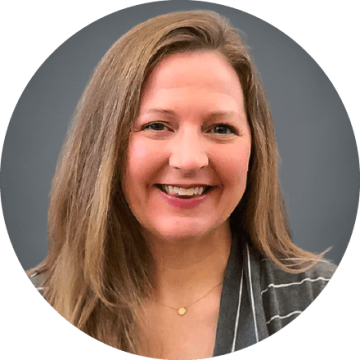CFO Media Roundtable: Prepare for ESG Requirements

As stakeholders pay more attention to environmental, social, and governance (ESG) issues, the greatest challenge chief financial officers will face is making sense of the huge amount of ESG data coming our way.
We’ll play a critical role in deciding what to report, how to report, where to report, and when to report.
Upcoming regulations—whether from the Securities and Exchange Commission, the European Commission, or stock exchanges around the world—may help answer those questions.
In the meantime, the United Nations Global Compact CFO Taskforce is providing a forum for CFOs to create real-world impact toward the UN’s Sustainable Development Goals (SDGs). This week the CFO Taskforce, New York Stock Exchange, and Workiva hosted a roundtable to talk about CFOs’ growing role in driving ESG efforts. I joined Jacobs Engineering Group President and CFO Kevin Berryman and Renewable Energy Group CFO Craig Bealmear in fielding questions from Sheryl Estrada of Fortune’s CFO Daily newsletter and some of the more than 300 CFOs and ESG leaders who signed up to attend virtually.
“The demand for sustainable investments is growing exponentially. We see it across our global client base here at PIMCO,” said Scott Mather, Chief Investment Officer U.S. Core Strategies of PIMCO and a co-chair of the CFO Taskforce, who joined the event with a special welcome message. Investors want more resilient portfolios focused on long-term growth, he said.
"We all know the sustainability agenda has gathered a lot of momentum in recent years. I mean, you can't open a financial journal or glance at any media without seeing it,” Scott said. “The role of corporate finance and chief financial officers hasn't necessarily been center stage. And I think that's about ready to change.”
CFOs taking a leading role in ESG
The 70 CFOs who have already joined the UN Global Compact CFO Taskforce have committed to investing more than $500 billion over the next five years in support of the SDGs.
We have also committed to linking nearly 50 percent of all corporate financing to sustainability performance. “That is the part of the market that we think could easily grow to become a $10 (trillion) to $20 trillion marketplace in the next five years,” Scott said. "Demand has really exceeded supply, and that's why we think there's a great opportunity for CFOs to really pursue aligning their capital-raising activities with sustainability.”
To draw sustainability-minded investors, companies need to report on their ESG goals and progress toward achieving those goals. Often that involves collecting data from multiple people across departments, business units, and locations—and then auditing that information to make sure it’s trustworthy.
How can we do that rapidly so information remains relevant to investors? Technology is the obvious answer. You wouldn't want to be doing any of that work manually—and couldn't in today's environment where many teammates are working remotely.
Craig is a firsthand user of ESG reports having joined Renewable Energy Group after spending more than 20 years with BP. “As I was making this career choice, it may surprise people to know I spent as much time looking at and evaluating REG’s ESG report as I did its 10-K,” he said.
"As a CFO, it's my responsibility to provide timely and accurate financial and nonfinancial information. As the ESG agenda is growing, the pull from shareholders and stakeholders for us to be able to speak to that agenda is only increasing,” Craig said. “We're going to need to also provide accurate and timely management information that supports what we are doing in the ESG space as well.”
Integrating ESG into corporate strategy
Just as Craig reviewed ESG reports to know who he’d be working for, investors want to know a company’s commitment to ESG goals before making long-term investments. Customers who have made their own ESG commitments will read reports to choose vendors who align with their ESG goals.
There’s no telling if the SEC’s upcoming ESG mandates will compare to the implementation of Sarbanes-Oxley, but Jacobs is already thinking about a governance structure to provide oversight and has appointed sustainability leads to drive the agenda throughout the organization. Jacobs’ corporate strategy is to include an ESG commitment in every project to support clients’ ESG goals, Kevin said. In addition, Jacobs formed an ESG risk committee at the board level.
Renewable Energy Group set up a task force to prepare for potential ESG data requirements. It has engaged its external auditor as a sounding board, and its board has a nominating and ESG committee.
At Workiva, I serve as the executive chair of our ESG Task Force, which reports to the Nominating & Governance Committee of the Workiva Board of Directors. We’ve hired a senior director of ESG, and we’ve completed an ESG materiality assessment to map our priorities. (Here’s a guide if you’d like to see what the assessment process is like.)
What CFOs can do now
Kevin, Craig, and I agree: get moving now.
"Be very, very proactive,” Kevin said. “Don't start two months from now.”
"I think it's so important for us to be getting ready—and to be getting ready now,” Craig said.
Once more companies start talking about ESG initiatives and publishing trusted information, we can measure how we’re performing compared to others in our industry or geographies and work to improve ESG performance.
That’s what stakeholders want to see: steady progress.
A few years ago, investors may not have demanded ESG data. “Fast forward to today, and there is an ESG tidal wave that's ultimately occurring relative to how many investors are focusing on the issue because it's considered to be good business going forward,” Kevin said. What lags is the clarification of metrics, rigor, and consistency in reporting around the globe. "That is probably the single largest challenge,” Kevin said.
Workiva has provided a platform for companies to perform ESG reporting for a decade, and I’d say that even before new mandates arrive, CFOs can take steps to lead. As CFOs, we have experience in providing a structure for gathering information from disparate sources, making sure it’s auditable and investor grade, making sense of the data, and crafting a narrative around it. Meanwhile, the technology CFOs use to simplify SEC reporting or internal management reporting can also streamline the ESG reporting process.
No one knows what future ESG mandates will look like. Aggregating information in a way that allows you to be flexible to meet future requirements will be key. Can you collect information in a centralized platform that serves as a single source of truth? Can you link data points in multiple reports? Can you tag data in kilograms so you can convert them all into a different unit of measure if that’s what new rules require? (P.S. Workiva works with a number of partners who can help answer these questions.)
Lead from the office of the CFO
I’m the CFO of a smaller public company and the first CFO from a SaaS company to join the UN Global Compact CFO Taskforce. I can confidently say every company can join in support of the UN SDGs—and technology is absolutely an asset in helping your company make progress toward environmental, social, and governance goals. It will take companies around the globe pitching in to really make a difference.
.@Workiva celebrates the UN @globalcompact Sustainable Development Goals and #CFOTaskforce https://t.co/FVXbZhvrBi
— NYSE 🏛 (@NYSE) January 12, 2022
Interactive ESG Guide: Materiality Assessment
Before tracking your organization's performance on environmental, social, and governance (ESG) issues, use this guide as a customizable template for engaging with stakeholders and assessing (or updating) which ESG topics are material to them and your organization.


